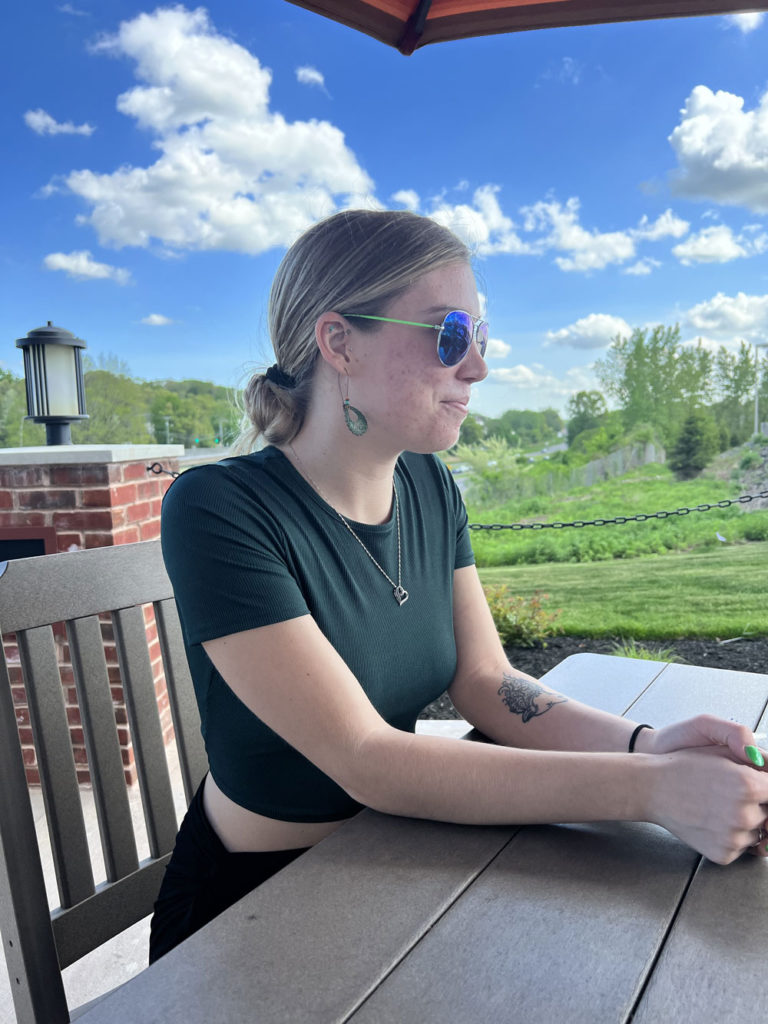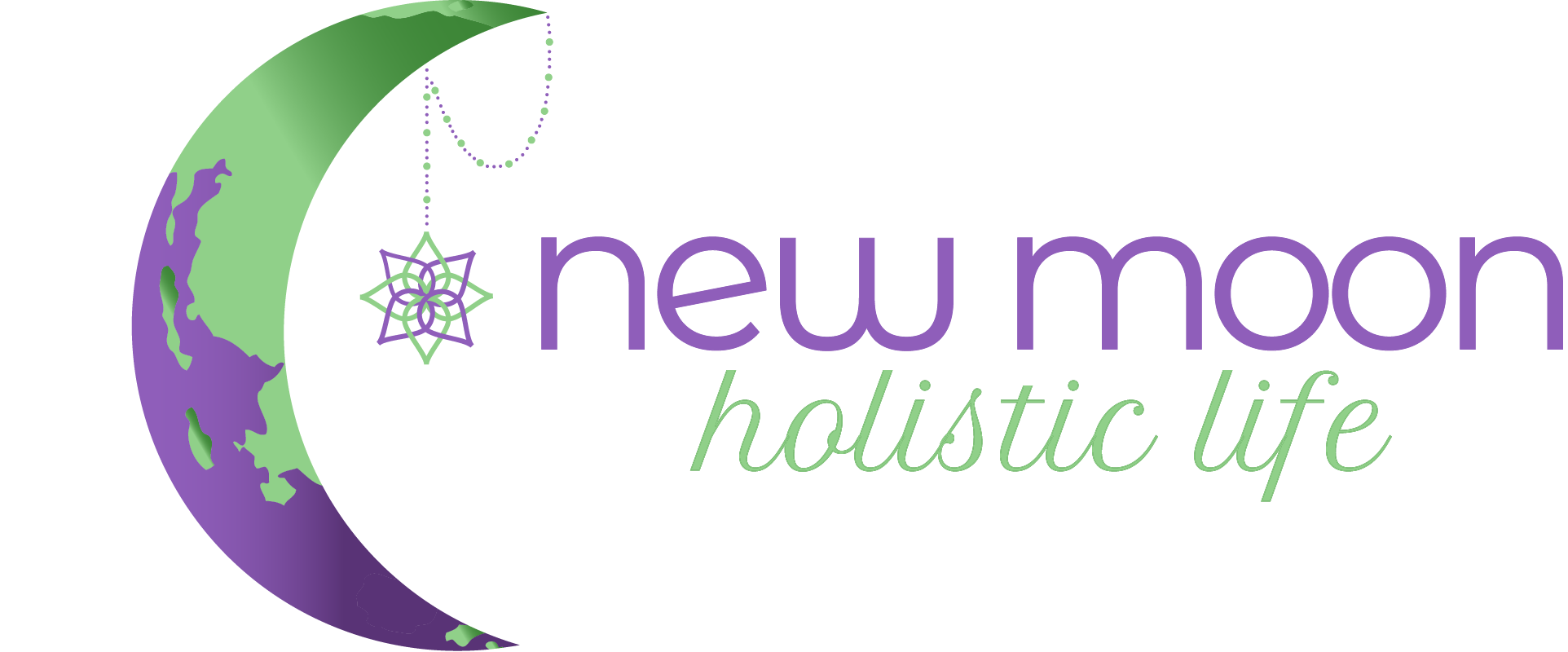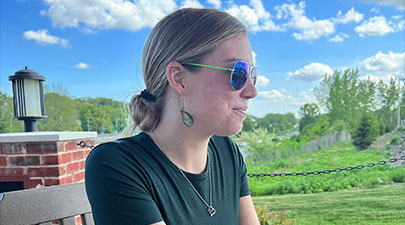
As a holistic life coach, I often get asked what a holistic lifestyle is and how I teach my clients to adopt this type of lifestyle. At its core, a holistic lifestyle means looking at and caring for the whole human – including the mind, body, spirit, and emotions. A holistic lifestyle builds lifestyle habits that allow us to support these components so that we can take care of ourselves, feel our best, and continue to grow and develop.
One part of a system within us can never be fully healthy and functional without the cooperation of other parts of the system – this is the philosophy of a holistic lifestyle. True health is not just the absence of sickness, but rather having a balanced body and a balanced mind. Let’s dive a little further into the definition of a holistic lifestyle, holistic practices, and common misconceptions of living a holistic lifestyle or working with a holistic life coach.
Definition of a Holistic Lifestyle
As I mentioned, a holistic lifestyle is caring for our mind, body, spirit, and emotions. It’s looking at the root causes when something feels “off” or unbalanced within us, and acknowledging that things that we feed our body can affect our mind & emotions, or that the things (content) we “feed” our mind can affect how our body & spirit feel, etc.! Your whole health is dependent on understanding the full picture, not just the parts that get magnified by the busy parts of your day-to-day life. It’s looking at more than the symptoms that we are experiencing. Most people live such busy, hectic lives that they don’t prioritize their health until they’re forced to.
Another important component to living a holistic lifestyle is really understanding who you are and what fuels your fire. Living as your true self, rather than making life decisions out of fear, will feel like being in true alignment and feeling fulfilled every morning when you wake up. This doesn’t mean that you won’t encounter stress or negative emotions, but it means that you are living a life that you have chosen out of love and following your passions, rather than a life that was created by making decisions out of fear. Life can either be a conscious decision, or a byproduct of fear.
Your holistic health is essential for your overall motivation, development, and performance. Managing your health holistically will generally mean you’re more active, more productive, have higher energy levels, your mood is better, and you’re happy, fulfilled, & grateful. It’s important to take a step back and get real about the garbage that we feed ourselves sometimes, including negative content on social media or from TV / streaming platforms, processed food & chemicals, jobs that don’t fulfill us, and thought patterns and beliefs that no longer serve us. Those who are looking to live a holistic lifestyle will slowly begin to incorporate these lifestyle changes, as it can take time and patience with yourself to create new habits that will last.
As a whole, holistic health means supporting your body with physical activity, mindful eating habits, conscientious nutrition and plant-based medicines that keep the body regulated. Holistic health means supporting your mind with careful consideration of the content you consume, the shows & movies you watch, and the thought processes/habits/behaviors that you allow to hold space in your head and your life. Last, holistic health means supporting your spirit by working for and with organizations that fulfill you, spending your time with people you care about, setting boundaries, and embracing a sense of belonging by being surrounded with meaningful, loving relationships.
These are just examples, but hopefully they provide clarification about what it means to live a holistic lifestyle. In reality, we could dive deeper into any one of these practices.
What are some ways to practice a holistic lifestyle?
Holistic practices are ways to care for yourself and your mind, body, spirit, or emotions to bring yourself back into alignment and balance. It’s the lifestyle habits and decisions that we make on a regular basis that you know are going to make you feel your best. There are many holistic remedies & lifestyle habits that I work with, and I customize my suggestions to my clients based on their specific needs. Here are some different holistic remedies that I work with:
- Identifying dietary habits that do not serve you. What foods are you eating that don’t make you feel well? Create a diet filled with whole, nutritious, non-processed, anti-inflammatory foods & oils. Oftentimes when people reflect on their relationship with food, they will learn much more about what keeps them feeling their best, and what kinds of sensitivities they may have – no matter how minor – that can affect the way that they feel.
- Identify underlying patterns and stories that you create. This includes looking at our subconscious mind and the habits, limiting beliefs, and negative thought patterns that we have stored from a young age. Reflection of our thought processes and subconscious programming are an important stepping stone to creating change in our lives and knowing what decisions we need to make differently.
- Managing emotions. Many of us are living in chronic stress and do more to avoid emotions than manage them. There are many habits we can incorporate into our lives, as well as tools like breathwork, meditation, spending time in nature, different resources for when we are in a heightened state of emotions, and more.
- Identify your passions and goals, and then strive for them! This could mean exploring creativity, finding / trying new hobbies and having things that you do for fun, or exploring different career & life paths that make you feel fulfilled, and more. Feeling balanced includes making time for the things that you love.
- Nervous system regulation. This ties in with managing our emotions and living in chronic stress. I teach my clients how to understand and work with their nervous system, as many of us have a dysregulated nervous system and this is why it may feel difficult to manage emotions or life transitions.
- Rewiring your mind. I teach my clients about neuroplasticity and how we can create new neurological pathways in our brains to truly change our personal reality. This is a very complex scientific practice that starts the conversation of the mind/body connection.
- An emphasis on spirituality. Understanding how your spirit, or vigor, can impact your goals and aspirations.
- Meditation, visualization, and breathwork. Working with the mind & body and emotions to regulate ourselves and design our future.
- Self-love and self-empowerment. Many of us that are stressed feel defeated and like we don’t have any other choices. I teach people how to be empowered to make decisions and how to fall in love with themselves again.
- Priorities. With our busy lives, it’s sometimes difficult to prioritize the things that are most important for ourselves and our self care. I teach organization, scheduling, accountability, creating lifestyle habits, and more so that my clients can prioritize for them.
- Plant-based medicine. Not that I don’t believe in traditional healthcare; but I teach the understanding that we can manage different systems & processes in our body through the use of different herbs. The bar for medical intervention is very low for most – when most of the time, health [and healing] can happen through your diet.
There are even more holistic practices that I teach my clients, but this is a great list of some of the core components!
What are some misconceptions of a holistic lifestyle?
There are many misconceptions of what I teach as a holistic life coach, and what it means to live a holistic lifestyle:
- Working with a holistic life coach to learn how to live a holistic lifestyle includes spending some time getting to know my client’s past and understanding some of the difficulties they encountered in their life and also discussing what changes they want to make. While we have these types of discussions, I am not a therapist and working with a holistic life coach is not a forever, ongoing process.
- I become an accountability partner with my clients during my time with them, but I cannot make the lifestyle changes for them. My clients need to commit to and do the work that I give to them, and then take everything I taught them to continue to grow in their life.
- Not everyone is a great fit for working with a holistic life coach – to work with a coach, it’s important to be “coachable” and have a growth mindset, rather than a fixed mindset. This may include working with and letting go of your ego to be here to learn and become a student of life.
- Spirituality and meditation are not religious in any way. Some people may choose to look at spirituality in a religious setting, but it does not have to be that way.
Now that you’ve learned more about what a holistic lifestyle is, if you’re interested in working with a holistic life coach like myself, check out my other blog article, “What Can Holistic Life Coaching Do For Me?” to learn even more!
If you’re interested in getting started, contact New Moon Holistic Life today to schedule a free 15-minute discovery session!

